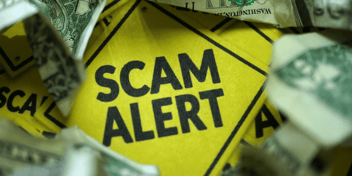Dealer Add-Ons to Avoid When Buying a New Auto
March 05, 2024

Buying a new car is more expensive than it's ever been. So the last thing you need is to pay for a bunch of dealer add-ons that you don't need.
In 2024, the average cost of a new car is over $47,000. And the maintenance is nothing to sneeze at either. The average vehicle owner spends almost $10,000 per year on maintenance, repairs, fuel, auto insurance, and more.
With these things in mind, the absolute last thing you need is a bunch of additional expenses tacked on to the standard fees associated with buying a new car (tax, title, registration, documentation and destination fee). These unnecessary extras could blow your budget every month and make you hate that new car smell before long.
So while these dealer add-ons might seem great when you’re sitting at the dealership about to drive off in your new vehicle, the truth is that they’re not usually worth the price, and won’t offer much of a benefit after you buy them.
Six Add Ons to Avoid
1. Window Etching
Window etching refers to the practice of having an auto's Vehicle Identification Number (VIN) on its windshield and windows. The premise behind it is that by having it on there, it makes your card less likely to be stolen because thieves would have to replace these items before selling it.
While car theft is a real thing, VIN etching isn’t likely to stop a determined thief. What it will do, though, is add between $200-$900 to the cost of your vehicle. And it can be a tricky item to be removed from the bill of sale since many dealers etch the VIN on the auto while it's still on the lost as an extra layer of security for themselves, but pass that cost on to the consumer as a perk.
The truth is, it's not worth the extra expense.
For starters, window etching isn't going to stop someone from stealing your car. Most thieves won't be bothered to check for window etching.
Maybe more importantly, there are cheap window etching kits that you can buy if you want added protection. This will save you hundreds of dollars and still allow you to enjoy the benefits of window etching.
2. Tire and Wheel Protection
Buying new tires for a car isn't cheap. Depending on size, the cost of a single all-season tire for a car ranges from $90-$150 each and $140-$500 per tire for a truck or SUV.
Many dealers try to use this to their advantage by selling tire and wheel protection plans that are supposed to cover every aspect of a car's tires. This includes the tires themselves in addition to the rims on a car.
If you happen to blow out all four tires on the ride home from the dealership, you'll be glad that you invested in a tire and wheel protection plan. But otherwise, it's not going to take you long to realize that you overpaid for a protection plan that you'll probably never even use.
A better plan would be to set aside a little bit of money every month for tire replacement since normal wear and tear is not part of the coverage, or to consider a AAA membership, which covers a flat change, jump for your dead battery, lock-out service and towing - whether you are in your car or someone else’s vehicle. This option is cheaper and provides the same peace of mind way beyond a new set of tires.
3. Nitrogen for Tires
Most race car drivers fill their tires with nitrogen. That's because nitrogen provides more pressure stability and seeps out of their tires slower than regular air does. But here's the thing: You're not a race car driver, so why in the world do you need to pay a dealer a couple of hundred dollars to put nitrogen in your tires?
For starters, your tires won't feel any different once filled with nitrogen vs. regular air. But if you really want to invest in this add-on, you can find a local tire shop to fill your tires with nitrogen for $10 or $20 at most.
4. Key Protection
Once upon a time, replacing a lost car key was simple. Since car keys looked just like house keys, they were easy to replace, and it didn't cost much to do it.But so much for that! Nowadays, car keys have turned into mini-computers. They're programmed to work only with specific cars and can cost hundreds of dollars to replace.
Car dealers know this, and it's another thing that they try to take advantage of when selling cars. They play up how amazing modern car keys are but point out how much they can cost to replace. They then offer to provide people with key protection plans to cover the cost of lost keys.
But what they don't tell you is that you can replace lost keys for a lot cheaper than what you'll pay for key protection by bringing your car to a locksmith or buying from a reputable retailer. Or that by adding the cost of it to your loan, you will pay exponentially more for that coverage than the price tag at dealership because it will accrue interest!
5. Paint and Fabric Protection
When you buy a brand-new car, it looks amazing. The paint is glistening and the interior has that "new car smell" that people love so much.
People will do anything to try and keep their cars looking and smelling like new. It's how so many car dealers get away with tacking on an extra $1,000 in some cases to provide people with paint and fabric protection.
The idea of protecting the paint on the outside of your car might sound appealing, but the truth is that you can buff out a lot of exterior scuffs yourself with a good compound purchased at an auto parts store.And if you do happen to get a stain in your interior upholstery, you can have it cleaned or repaired for a lot less than what you would have to pay a dealer to protect it.
6. Roof Racks
Having a roof rack on the top of your car can come in handy. You can use it to pack your car for a vacation or to haul gear if you're a thrill-seeking adventurer.
This might tempt you to say "yes!" when your dealer asks if you want a roof rack added on. But unless you're able to negotiate it into the price you're already prepared to pay for your car, it's not worth it.
You can get the same kind of roof rack that you would get from a dealer at a sporting goods store for less money. It's yet another dealer add-on that you don't need.
Valuable Add Ons to Consider
While it is true that some dealer add ons can lead to an inflated bill of sale, there are a few that are worth considering as they can save your valuable money down the road.
1. Extended Warranties
An extended warranty policy provides you with coverage for a bunch of the parts in your car once the standard warranty from your car's manufacturer ends. You'll also get some maintenance and repair jobs performed on your car at no charge when you have an extended warranty, and there is real value in that. But if you are on the fence about whether to add this coverage before you drive off the lot, keep in mind that you don’t have to buy it now. You can purchase extended warranties after the sale, and even beyond that. You also have the choice of buying a warranty through the dealer, the lender, or your auto insurance company, so take your time, do the research, compare policies and go with the one that makes the most sense for you and saves you the most money. By going this route, you can save a lot of money while still protecting your car.
2. GAP Insurance
Most people are well aware of the fact that a new car starts to depreciate as soon as they drive it off a dealer's lot. But what they don't always realize is that this could affect them in a big way if they're involved in an accident soon after buying a car.
Your auto insurance company is only going to give you what your car is worth if you total it during an accident, not what you still owe on it. So if you purchased a $20,000 car without a down-payment or trade-in, but it's only worth $15,000 in the eyes of your auto insurance company, you still owe $5,000 on it. This is thanks to the "gap" between what you owe and what it's worth.
Auto dealerships will often inform buyers about GAP (guarantee asset protection) insurance so they are aware of the risks of not having it. However, you should never succumb to scare tactics or pressure. Like an extended warranty, GAP coverage can be purchased from other parties, so be sure to educate yourself about the coverage and the costs from all available sources before you commit to purchase right away. Learn more about GAP coverage offered by Education First.
Know It’s OK to Say No
Buyer's remorse is something that some new car buyers deal with shortly after purchasing a vehicle. One reason is that the add-ons not only increase their monthly payment, but ultimately the overall cost of the loan over its entire term because you’ll be paying interest on these items for years to come. Don’t fall into the trap of leaping before you look. Take careful stock of the coverage that is most valuable to you, and do the leg work to make sure you are getting the best deal.
While you’re at it, you can out our online shopping tool, AutoSMART where you can browse dealer inventory, compare prices, and get pre-approved online, or use our free auto loan payment calculator tool to determine the best loan for you.




